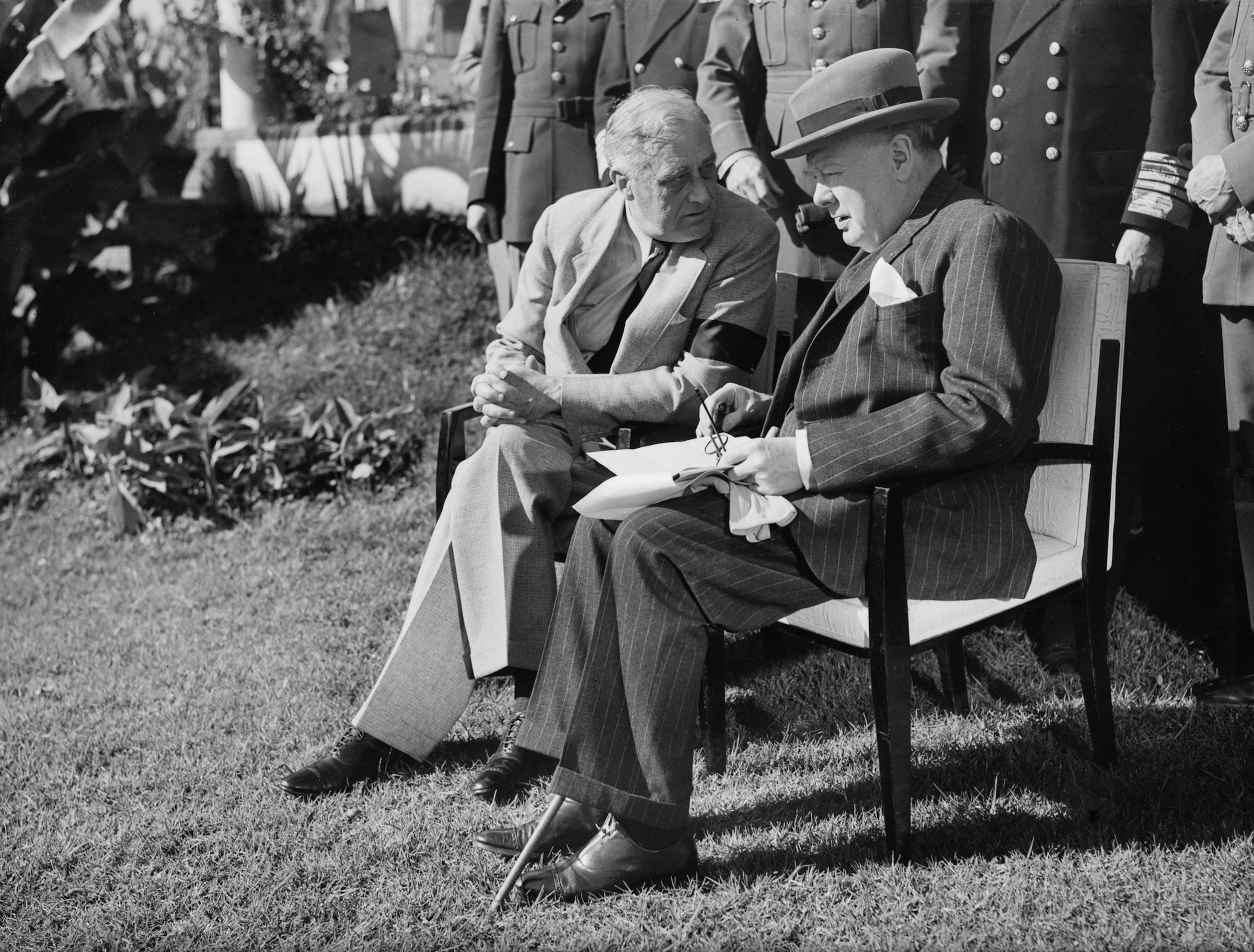
At the end of November 1942, Franklin Roosevelt suggested to Winston Churchill that a meeting between the Allied leaders to discuss strategy would be in order. Now that the United States and Britain had a toehold in North Africa thanks to the success of Operation Torch, what should they do next? The president suggested meeting in Cairo or Moscow. Churchill replied with Iceland. Roosevelt, however, had no interest in going anywhere cold. “I should prefer a secure place south of Algiers or in or near Khartoum,” wrote the president. “I don’t like mosquitoes.”
After settling on Casablanca as the conference location, Roosevelt and Churchill decided their meeting should remain secret until its conclusion, requiring extreme subterfuge to assemble everyone in French Morocco. British military officers were given cover stories, and in Washington the Secret Service picked up the baggage of people traveling with Roosevelt at their homes to avoid it accumulating in their offices or at the White House. At 10:30 p.m. on January 9, Roosevelt’s train departed Washington from the underground station at the Bureau of Engraving and headed north—before doubling back and heading south for Miami, where two Pan Am Clippers waited to carry the American delegation across the Atlantic Ocean.
From January 14 to 24, 1943, Roosevelt, Churchill, and Anglo-American military planners met in Casablanca to hash out their priorities for the coming year. They were also joined by Henri Giraud and Charles de Gaulle, who headed up opposing factions of the French resistance. (Stalin had been invited but declined to attend.) Roosevelt and Churchill excluded the press from the conference—partly for safety reasons and partly to allow them to work without scrutiny of their every move.
But, toward the end of the conference, Allied Forces Headquarters invited a group of approximately 50 journalists to Casablanca, promising them a history-making event.
With space short in Anfa, the journalists received lodgings at the Excelsior, an upscale hotel on Casablanca’s main thoroughfare across from the entrance to the old medina. They were instructed not to talk about their assignment in front of hotel employees or others in Casablanca. They were also told to behave as if their rooms were bugged. The Excelsior’s bar had been a favorite hangout for the German Armistice Commission, and the current extent of Nazi infiltration of the hotel staff remained unclear. To help with security, the U.S. Army temporarily took over the hotel’s switchboard and kitchen.
On January 24, the final day of the conference, the journalists assembled on the lawn behind Roosevelt’s villa. Four white chairs sat empty before the scrum of reporters.
Shortly after noon, the door to the villa opened, and Churchill, de Gaulle, and Giraud walked out, while Roosevelt was carried to his chair. The whirling of film and clicking of cameras quickly replaced the murmurs of disbelief.
“When the Press reporters saw us both they could scarcely believe their eyes, or, when they were told we had been there for nearly a fortnight, their ears,” wrote Churchill.
Roosevelt and Churchill hoped to bring the competing factions of the French resistance together in Casablanca, but their attempt proved futile. There would be no headlines touting a new, unified French war effort. But photographs showing American, British, and French leaders together would galvanize Allied propaganda efforts. As Giraud, Roosevelt, and Churchill traded small talk and offered occasional smiles for the cameras, a solemn-faced de Gaulle smoked a cigarette. A photographer wanted more—something that didn’t smack of a command performance—and urged Giraud and de Gaulle to shake hands. The generals ignored the suggestion, until the president prodded them. “Why not shake hands?” said Roosevelt. “You two Frenchmen are loyal to your country, and that warrants a cordial handshake anytime.”
They stood, de Gaulle pulling the cigarette from his mouth and holding it to the side, and managed a fleeting handshake. Unable to capture the moment, the photographers called for them to do it again. The second shake was no less awkward.
After Giraud and de Gaulle departed, Churchill moved over to sit by Roosevelt and talk further with the reporters and war correspondents gathered before them. Roosevelt began by reading a background statement and then spoke from some notes for about fifteen minutes.
“I think we have all had it in our hearts and heads before, but I don’t think that it has ever been put down on paper by the Prime Minister and myself, and that is the determination that peace can come to the world only by the total elimination of German and Japanese war power,” said Roosevelt. “Some of you Britishers know the old story—we had a General called U. S. Grant. His name was Ulysses Simpson Grant, but in my, and the Prime Minister’s, early days he was called ‘Unconditional Surrender’ Grant. The elimination of German, Japanese and Italian war power means the unconditional surrender by Germany, Italy, and Japan. That means a reasonable assurance of future world peace.”
As Roosevelt envisioned it, “unconditional surrender” meant not the annihilation of the German, Italian, and Japanese populaces but “the destruction of the philosophies in those countries which are based on conquest and the subjugation of other people.”
When the president mentioned “unconditional surrender,” Churchill’s head whipped toward him. The prime minister’s reaction suggested that he found the phrase surprising—a perception that grew after the war, when the concept of “unconditional surrender” became somewhat controversial. At one point, Churchill suggested that he had never heard the phrase until it came out of Roosevelt’s mouth at the press conference. In his memoirs, he backtracked on that claim somewhat, while continuing to imply that the policy had not been approved in advance.
The idea of “unconditional surrender” had in fact been thoroughly discussed at the conference, but Roosevelt would later tell Harry Hopkins that he hadn’t actually planned on announcing “unconditional surrender” as Allied policy. “We had so much trouble getting those two French generals together,” said Roosevelt, “that I thought to myself that this was as difficult as arranging the meeting of Grant and Lee—and then suddenly the Press Conference was on, and Winston and I had had no time to prepare for it, and the thought popped into my mind that they had called Grant ‘Old Unconditional Surrender,’ and the next thing I knew I had said it.”
In his memoirs, Churchill noted that he had disagreed with Roosevelt’s decision to announce the policy, but to make that quarrel public before a pack of journalists would have damaged the war effort. There could be no visible fractures in the Anglo-American alliance. Instead, Churchill opened his own remarks to the press by saying, “I agree with everything the President has said.” He also emphasized the importance of his friendship with Roosevelt. “Well, one thing I should like to say, and that is—I think I can say it with full confidence—nothing that may occur in this war will ever come between me and the President. He and I are in this as friends and partners, and we work together. We know that our easy, free conversation is one of the sinews of war of the Allied Powers.”
Adapted from Destination Casablanca: Exile, Espionage, and the Battle for North Africa in World War II by Meredith Hindley. Copyright © 2017. Available from PublicAffairs, an imprint of Perseus Books, LLC, a subsidiary of Hachette Book Group, Inc.
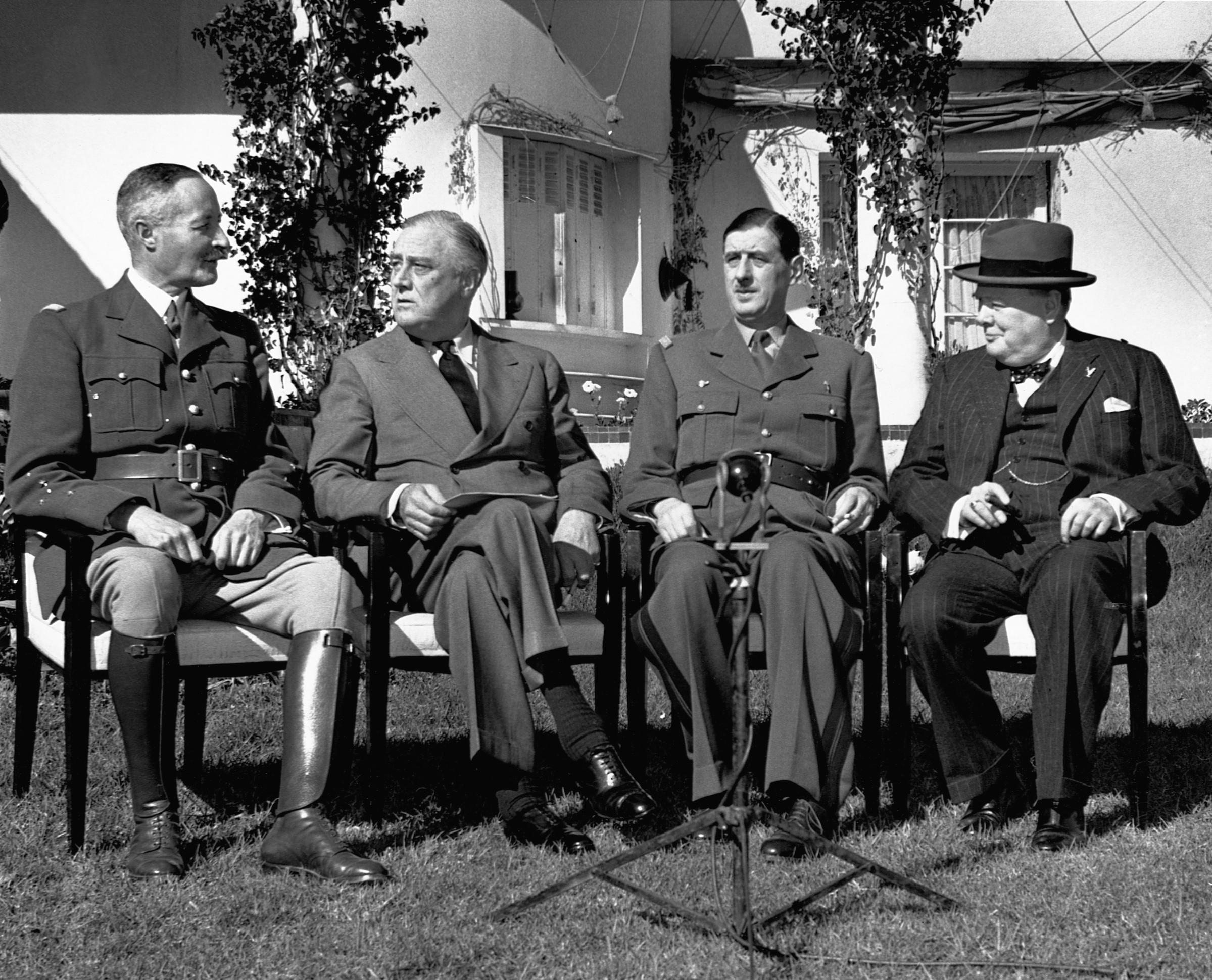
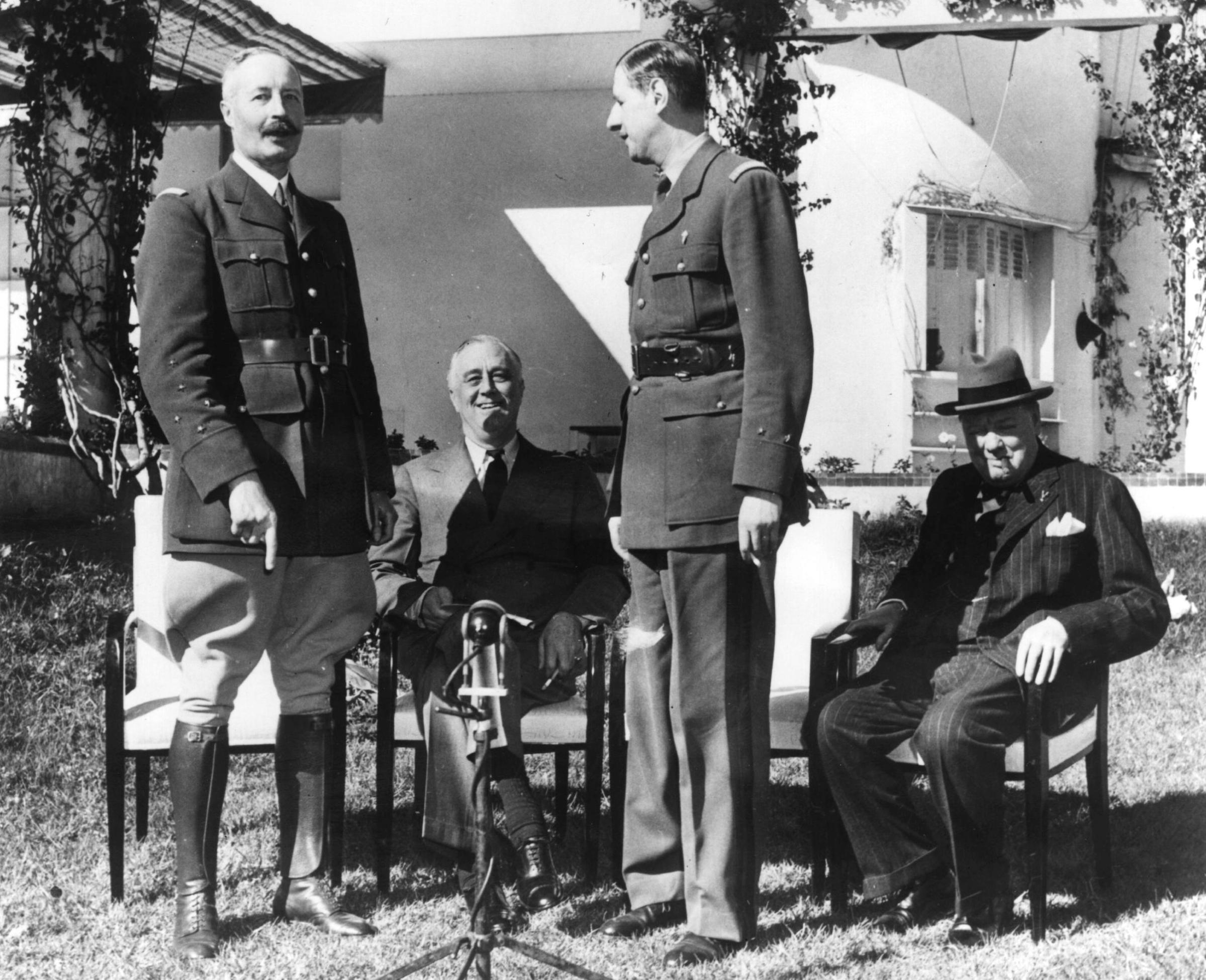
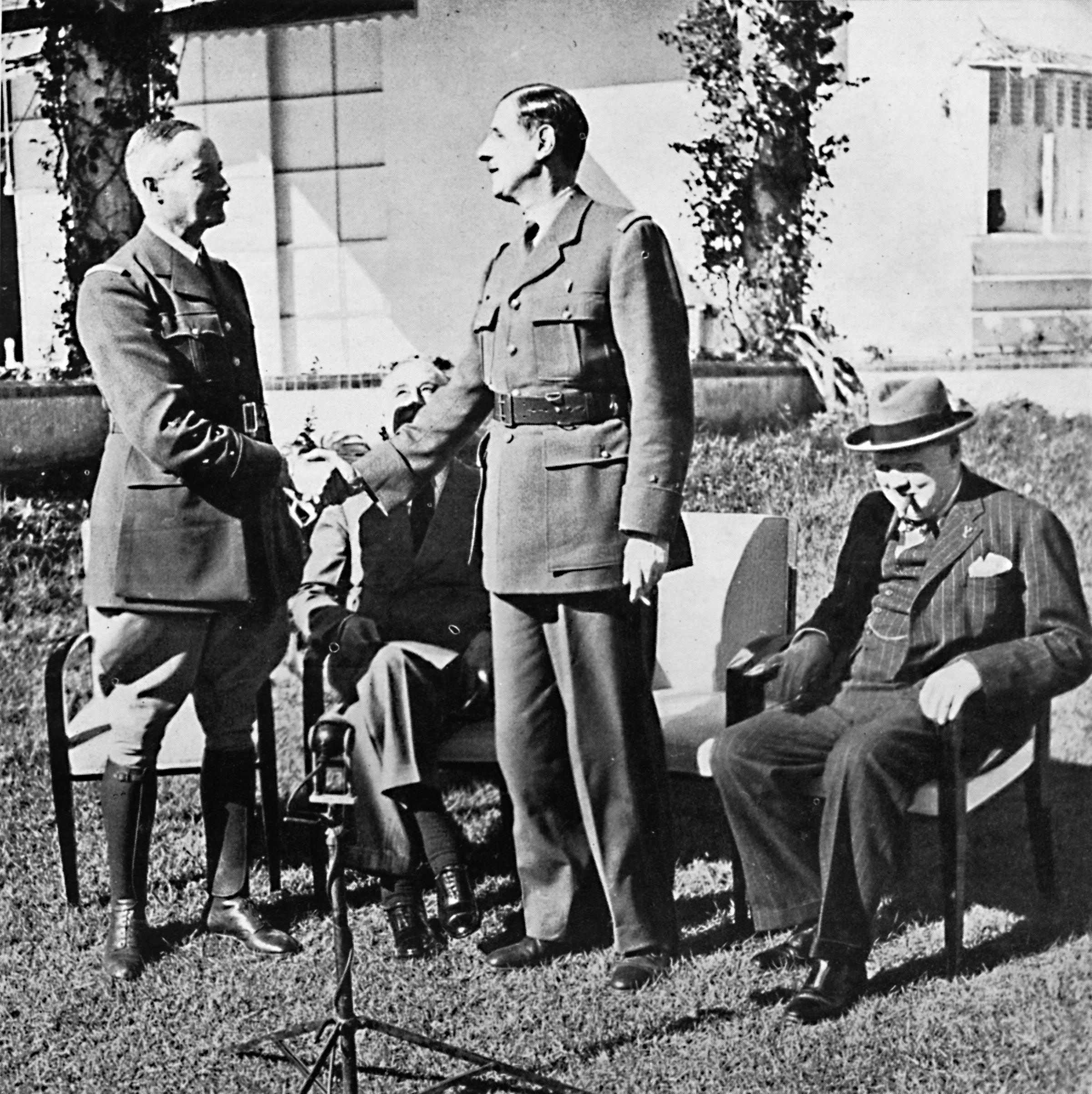
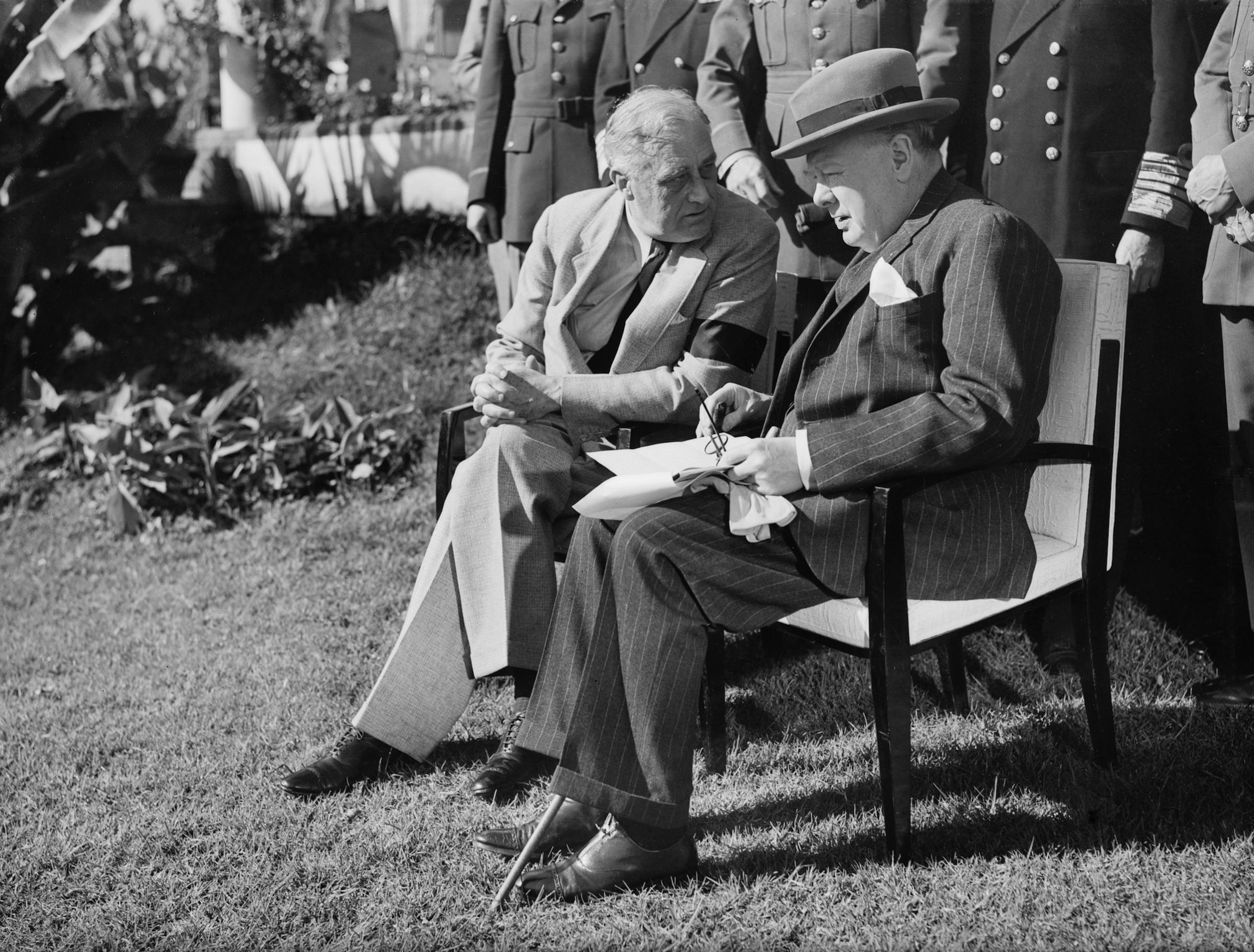
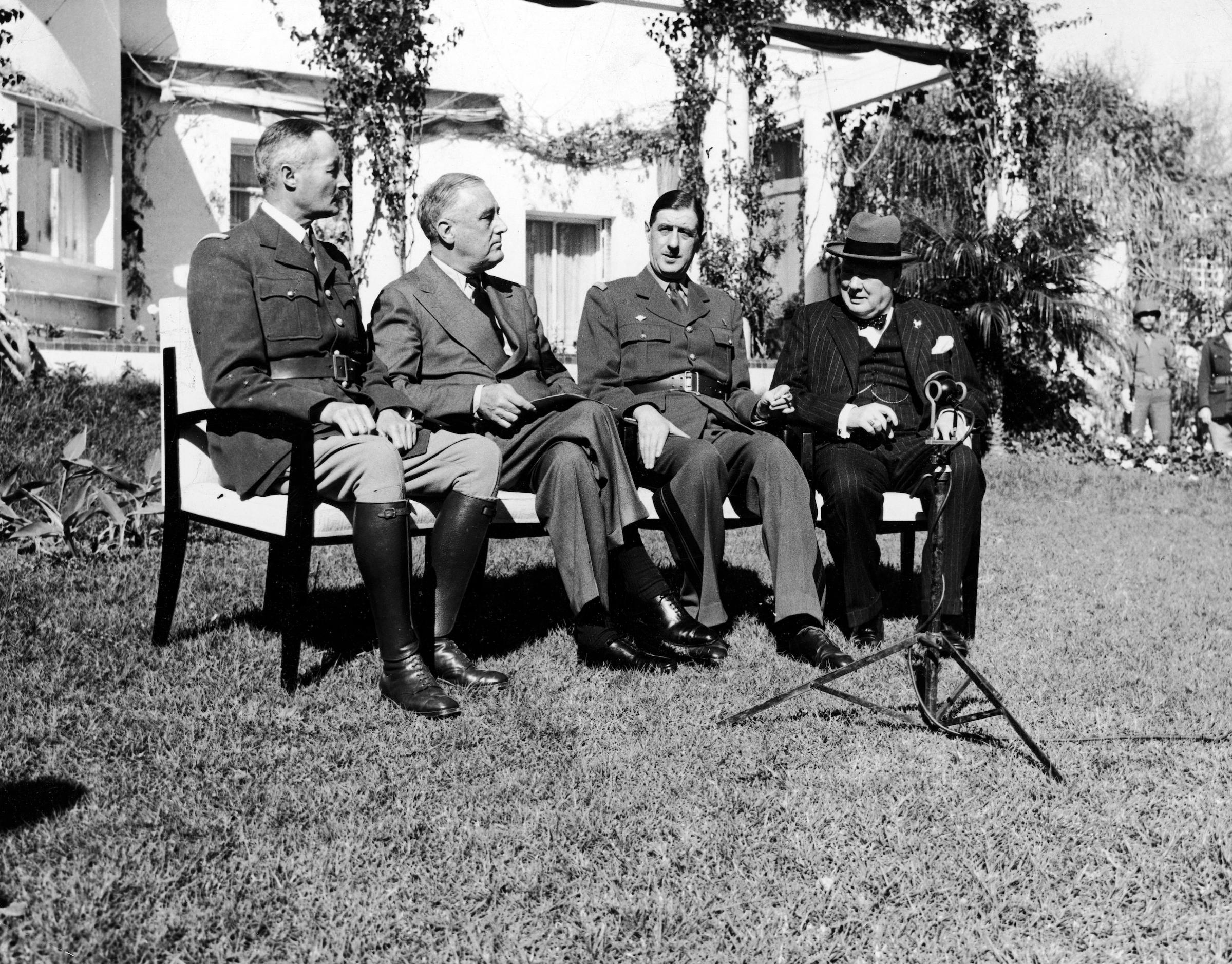
More Must-Reads From TIME
- Dua Lipa Manifested All of This
- Exclusive: Google Workers Revolt Over $1.2 Billion Contract With Israel
- Stop Looking for Your Forever Home
- The Sympathizer Counters 50 Years of Hollywood Vietnam War Narratives
- The Bliss of Seeing the Eclipse From Cleveland
- Hormonal Birth Control Doesn’t Deserve Its Bad Reputation
- The Best TV Shows to Watch on Peacock
- Want Weekly Recs on What to Watch, Read, and More? Sign Up for Worth Your Time
Contact us at letters@time.com